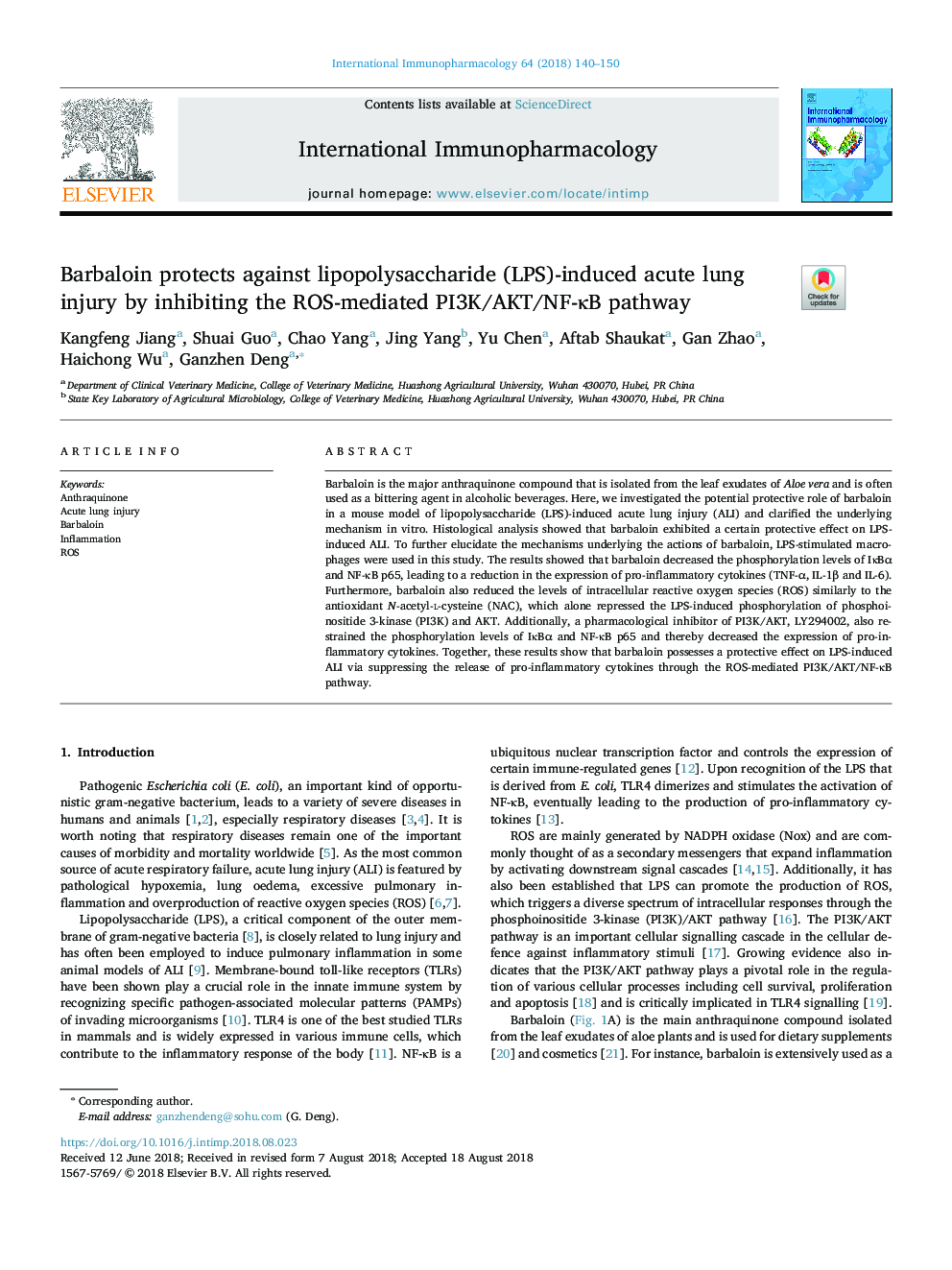| Article ID | Journal | Published Year | Pages | File Type |
|---|---|---|---|---|
| 10137529 | International Immunopharmacology | 2018 | 11 Pages |
Abstract
Barbaloin is the major anthraquinone compound that is isolated from the leaf exudates of Aloe vera and is often used as a bittering agent in alcoholic beverages. Here, we investigated the potential protective role of barbaloin in a mouse model of lipopolysaccharide (LPS)-induced acute lung injury (ALI) and clarified the underlying mechanism in vitro. Histological analysis showed that barbaloin exhibited a certain protective effect on LPS-induced ALI. To further elucidate the mechanisms underlying the actions of barbaloin, LPS-stimulated macrophages were used in this study. The results showed that barbaloin decreased the phosphorylation levels of IκBα and NF-κB p65, leading to a reduction in the expression of pro-inflammatory cytokines (TNF-α, IL-1β and IL-6). Furthermore, barbaloin also reduced the levels of intracellular reactive oxygen species (ROS) similarly to the antioxidant Nâacetylâlâcysteine (NAC), which alone repressed the LPS-induced phosphorylation of phosphoinositide 3-kinase (PI3K) and AKT. Additionally, a pharmacological inhibitor of PI3K/AKT, LY294002, also restrained the phosphorylation levels of IκBα and NF-κB p65 and thereby decreased the expression of pro-inflammatory cytokines. Together, these results show that barbaloin possesses a protective effect on LPS-induced ALI via suppressing the release of pro-inflammatory cytokines through the ROS-mediated PI3K/AKT/NF-κB pathway.
Related Topics
Life Sciences
Immunology and Microbiology
Immunology
Authors
Kangfeng Jiang, Shuai Guo, Chao Yang, Jing Yang, Yu Chen, Aftab Shaukat, Gan Zhao, Haichong Wu, Ganzhen Deng,
